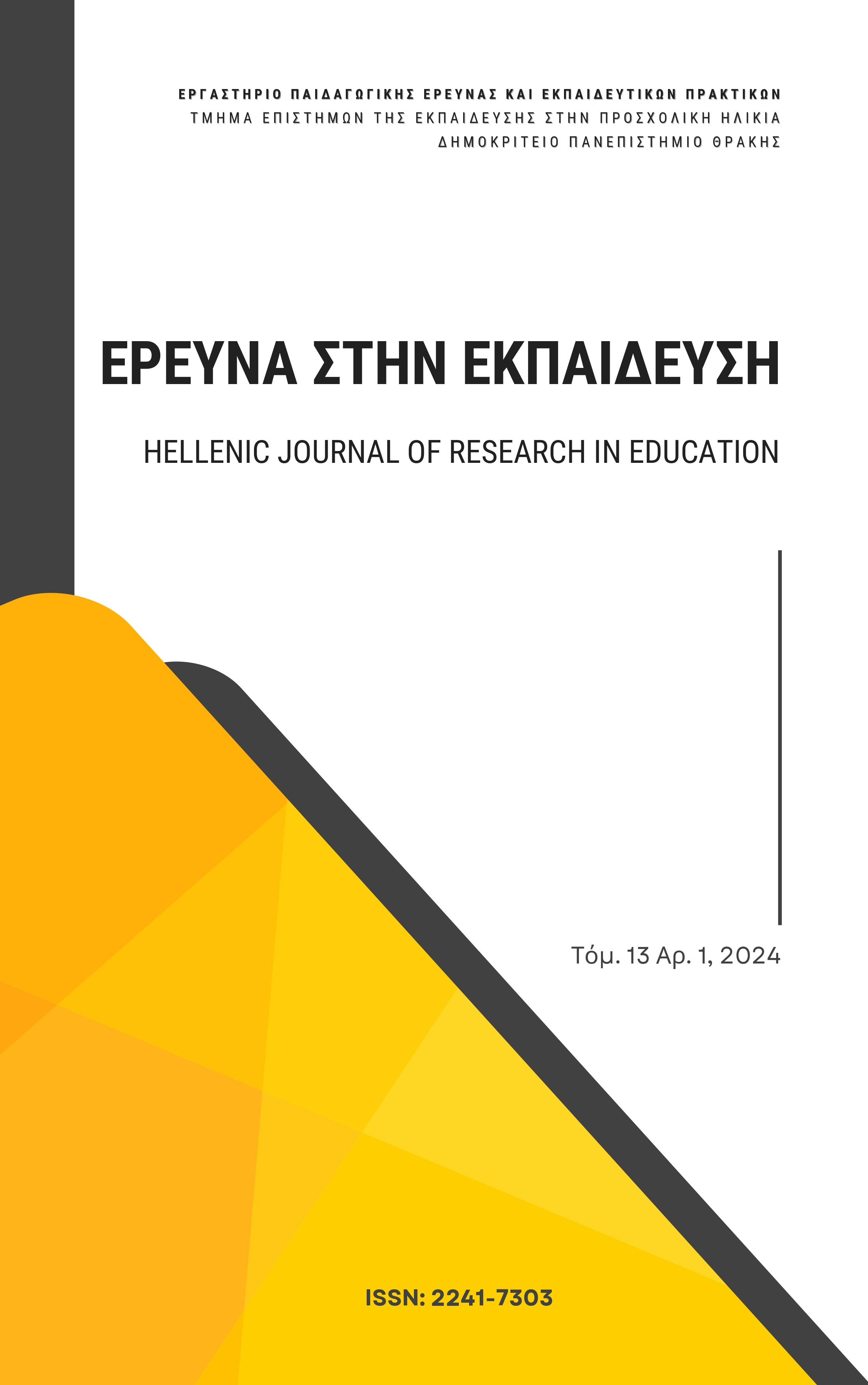Home-school Communication in Greek Secondary Multicultural Educational Settings: Parents’ and Teachers’ perspectives

Περίληψη
Although it is widely acknowledged that home-school communication, as an aspect of parental involvement, plays a decisive role in children’s educational and socioemotional development, while it promotes social inclusion, especially in multicultural educational settings, the topic has not been adequately explored in Greece, especially in Lower High School. We qualitatively explored teachers’ and parents’ perceptions on home-school communication. The aims of this research were to examine (1) what kind of experiences teachers and parents have from home-school communication, (2) how does gender affects the entire process, and (3) which are the practical suggestions for improvement. The results of this research are the following: different perceptions of effective home-school communication, passive parental involvement, the immigrant status, structural obstacles, cultural and linguistic language diversity, stereotypes, and gender function as obstacles against effective home-school communication. Participants highlighted that possible solutions involve regular home-school communication, home-school collaboration, holistic and flexible practices, translators, and support toward families, especially mothers.
Λεπτομέρειες άρθρου
- Πώς να δημιουργήσετε Αναφορές
-
Pliogou, V., & Tromara, S. (2024). Home-school Communication in Greek Secondary Multicultural Educational Settings: Parents’ and Teachers’ perspectives. Έρευνα στην Εκπαίδευση, 13(1), 66–88. https://doi.org/10.12681/hjre.36656
- Τεύχος
- Τόμ. 13 Αρ. 1 (2024)
- Ενότητα
- Άρθρα

Αυτή η εργασία είναι αδειοδοτημένη υπό το CC Αναφορά Δημιουργού – Μη Εμπορική Χρήση – Παρόμοια Διανομή 4.0.
Τα πνευματικά δικαιώματα των άρθρων του περιοδικού ανήκουν στους συγγραφείς. Τα άρθρα διατίθενται με άδειες Creative Commons CC-BC-SA 4.0


